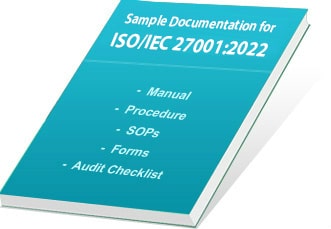
In the virtual age, wherein data is each an asset and a vulnerability, organizations face a relentless barrage of cyber threats. Building robust protection requires more than just technology, it necessitates a proactive and holistic approach to information security. Input the ISO 27001 Lead Auditor, a crucial figure who guides organizations towards implementing and maintaining internationally recognized best practices for data protection.
Guiding organizations through the evolving threat landscape:
• Cybersecurity metamorphosis: Gone are the days of simple malware attacks. Sophisticated ransomware, targeted phishing campaigns, and zero-day vulnerabilities demand constant vigilance. Lead auditors, equipped with deep threat knowledge and analytical skills, help organizations identify, assess, and mitigate these ever-evolving risks.
• Navigating the data privacy labyrinth: The regulatory landscape is a complex web of data privacy laws like GDPR and CCPA. Lead auditors, versed in those policies and their implications, enable organizations to navigate compliance challenges while minimizing operational disruptions.
• Securing the remote workforce revolution: With the rise of remote work, traditional security perimeters blur. Lead auditors help assess and strengthen controls for endpoints, cloud infrastructure, and secure remote access solutions, ensuring organizations are protected beyond physical walls.
• Bridging the cybersecurity skills gap: The lack of skilled cybersecurity professionals hinders effective information security. Lead auditors can mentor and upskill internal teams, empowering them to implement and manage controls effectively.
Becoming a pillar of information security excellence:
• Rigorous training and expertise: To become an effective lead auditor, individuals undergo intensive training programs that equip them with in-depth knowledge of the ISO 27001 standard, auditing methodologies, and relevant industry best practices.
• Continuous learning and staying ahead of the curve: The dynamic nature of cybersecurity demands unwavering commitment to professional development. Lead auditors need to proactively stay updated on emerging threats, technologies, and regulatory changes to effectively guide their clients.
• Strong analytical and communication skills: Lead auditors possess keen analytical skills to assess controls, identify vulnerabilities, and recommend effective mitigation strategies. They also excel in communication, collaborating with diverse stakeholders and clearly articulating complex security concepts.
ISO 27001 Lead Auditor Training:
ISO 27001 lead auditor training is a comprehensive program designed to equip experts with the understanding and skills required to assess, audit, and manage an organization’s ISMS efficiently. The training covers the intricacies of the ISO 27001 standard, providing participants with a deep knowledge of its concepts, requirements, and implementation methodologies.
Online ISO 27001 lead auditor training has become increasingly popular due to its flexibility and accessibility. Specialists can undertake the training from the comfort of their workspace, allowing for minimal disruption to their daily routines. This approach enables a wider audience to access the expertise required to become proficient ISO 27001 lead auditors.
The future of information security and the role of the lead auditor:
As the digital landscape evolves, the demand for skilled and experienced ISO 27001 lead auditors will continue to rise. Those individuals will play an essential role in helping organizations navigate the complexities of cyber threats, comply with regulations, and build a culture of information security that thrives in the face of constant change.
In conclusion, ISO 27001 lead auditors are instrumental in upholding the integrity and effectiveness of information security practices within organizations. Through specialized training, these professionals contribute to the successful implementation and maintenance of ISMS, ultimately paving the way for ISO 27001 certification and the associated benefits in today’s dynamic and interconnected business environment.



